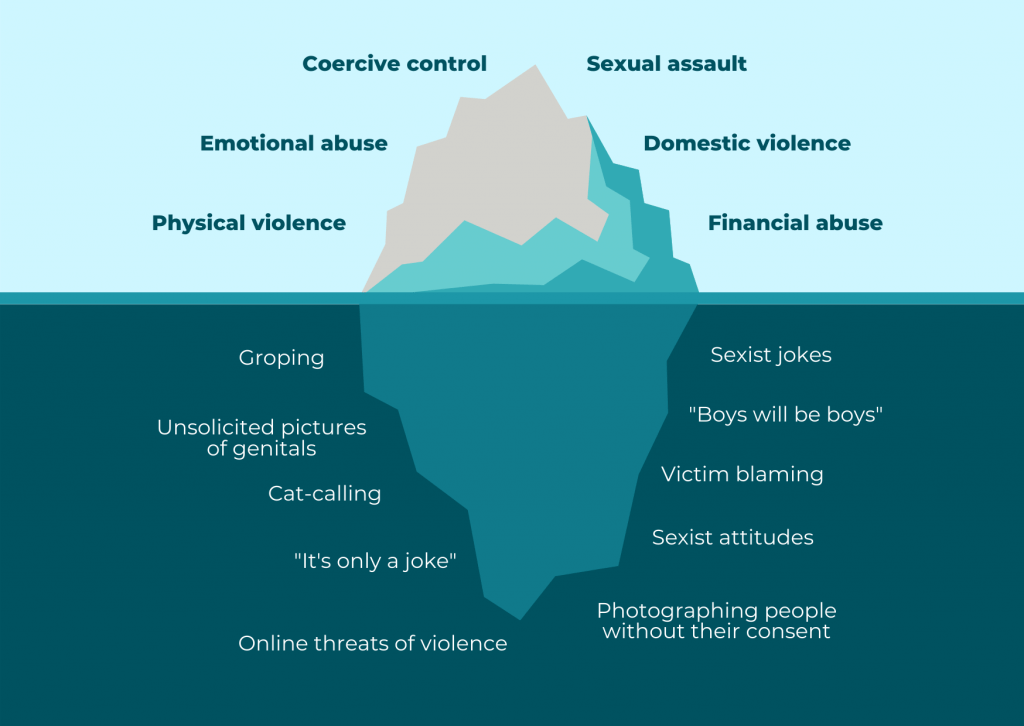Gender-based violence is the globally-recognised term for harmful acts directed toward an individual based on their gender. In the Australian media, you’re more likely to hear the issue referred to as “violence against women” rather than gender-based violence, but they mean the same thing. Gender-based violence is clearly linked to gender inequality, the abuse of power and the perpetuation of detrimental gender norms.
“Violence against women is any act of gender-based violence that causes or could cause physical, sexual or psychological harm or suffering to women, including threats of harm or coercion, in public or in private life.”
UN Declaration
Gender-based violence can take many forms, including physical, sexual, psychological, financial, social, emotional, cultural and spiritual abuse.
Most importantly – gender-based violence is entirely preventable and making gender equality a reality is the best way we can end this insidious form of violence.
How common is gender-based violence in Australia?
Gender-based violence in Australia is more common than you’d think.
- One in three Australian women have experienced physical violence since the age of 15.
- One in five Australian women have experienced sexual violence since the age of 15.
- Almost 1 in 4 women have been emotionally abused by a partner since the age of 15.
- Four in five women in Australia have experienced sexual harassment since the age of 15.
It’s also important to note that women with disabilities, young women, First Nations women, women from refugee and migrant backgrounds, and LGBTIQA+ people are far more likely to experience gender-based violence.
The insidious nature of gender-based violence
If we were to use the metaphor of an iceberg to describe gender-based violence, the part poking out of the water would be the obvious stuff we recognise as violence – such as sexual and physical violence, but there’s plenty more beneath the surface that perpetuates and encourages this kind of behaviour that we might not think of as violent.
Sexist jokes, victim-blaming and perpetuating harmful stereotypes can escalate to behaviour we recognise as violent.

Research from the Australian Government Department of Social Services found that despite the fact that 96% of Australians think violence against women is a criminal offence:
- 47% of young men and 34% of young women do not think that ‘trying to control your partner by denying them money’ is a form of violence against women.
- 24% of young women and 13% of young women do not think that ‘controlling social life by preventing your partner from seeing friends and family’ is a form of violence against women.
- 21% of young men and 14% of young women do not think that ‘repeatedly criticising to make partner feel bad / useless’ is a form of violence against women.
This is extremely alarming and goes to show the nature of things like coercive control and financial abuse aren’t well understood as forms of violence in Australia.
In order to end gender-based violence we need to understand, recognise and address the full problem
We need to recognise that gender-based violence has many names and forms. It includes:
- Domestic violence
- Family violence
- Coercive control
- Sexual harassment
- Sexual assault
- Emotional abuse
Take some time to research and learn what gender-based violence looks like in Australia. Because to end it – we must be able to identify it.
Our focus for 2021 for 16 Days of Activism Against Gender-Based Violence is “16 Days, 16 Ways”, where we are sharing 16 ways you can play a role in ending gender-based violence over the next 16 days. This was Day 1: Identify It. Follow the rest of the campaign and find out the other 15 ways here.




